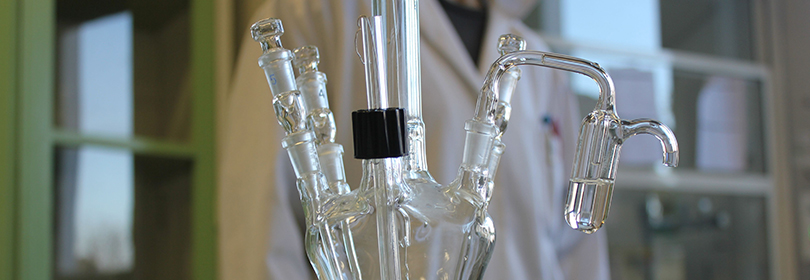
Monitoring ionic analytes in natural waters or in biological fluids (plasma, urine) hydrophilic drugs is a challenge. The problematic step is the sample preparation and pre-concentration: there is a need for a high affinity of the target solute to the extracting solid phase and also a high selectivity of the extraction. One of the most promising means to attain such properties is to specifically design molecular imprints of the drug to be analysed. Nanoparticles have been envisaged in this project for 2 reasons : first their high specific surface area allow a rapid extraction of the solute, second a recent research work have shown that they are adsorbing at the liquid-liquid interface allowing a gain of sensitivity and selectivity in electrochemical analysis.i After the preliminary study of the effect silica nanoparticles on the electrochemical transfer of ionic dyes through a liquid liquid interface, Diclofenac was considered a a target analyte. Diclofenac is classified by ChEBI (Chemical Entities of Biological Interest) as an environmental contaminant and has been added to the watch list of emerging aquatic pollutants in the 2000 Water Framework Directive.
Silica nanoparticles imprinted with diclofenac were prepared, charaterised and the selectivity of the adsortion was studied with analogous compounds (Aceclofenac, 4-phenylazo benzoic acid,...).To demonstrate that the observed selectivity is attibutable to the molecular imprint effect, non imprinted particles was also systematically considered.
Contact
Envoyer un mail


